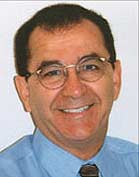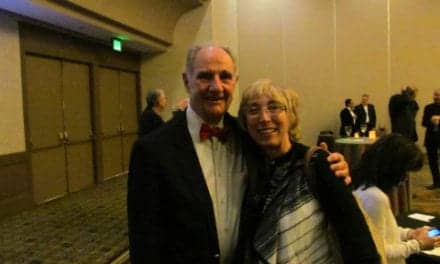Tools of the trade for real professionalism in hearing care
If we truly want to be professionals in a doctoring profession, we need to expand our knowledge base and commit ourselves and our practices to several basic concepts.
A question for audiologists: Who are we and what denotes professionalism for the AuD as a doctoring profession? In my view, a few things come into play as professionals:
Looking out for our patients—and our staff. The patient case history, how it’s obtained, and the information secured within the case history are paramount to treating a patient. However, having an interest in a case history limited only to the ear and concomitant dizziness or tinnitus will thwart one’s ability to diagnose and treat patients with hearing loss. Our interests should expand to include the patient’s comprehensive medical history—surgeries, recent illnesses, medications, and chronic disease, such as HIV/AIDS and hepatitis A, B, or C.
Not only should our interest be in understanding the patient but also in protecting ourselves, our staff, and other patients from any communicable diseases. Thus, we must maintain appropriate infection control procedures in our offices. Thorough infection control procedures are designed to safeguard our aging patients who tend to be in a more frail state.
Displaying professionalism in our language. As audiologists and licensed hearing instrument specialists, the language and jargon with which we express ourselves become very important to how we are perceived by our patients. Words such as “sell,” “factory,” and “trade-in” tend to lower the professional bar and move us from a discipline that helps solve an important and debilitating physical problem to one that resembles a retail store or warehouse. Our presentation of hearing aids and ourselves to the public will either create trust in our professions or raise questions as to our intent.
Comprehensive care through basic knowledge of related subspecialties. There is an emotional component necessary in both advertising the need for hearing aids and helping patients understand the extent of their hearing loss. In doing so, we own our scope of practice, which includes not only the dispensing of hearing aids but the diagnosis and treatment of hearing loss. As part of a doctoring profession, audiologists must expand their scope of practice to include not just cerumen removal, but also several other subspecialties. These subspecialties include a more in-depth knowledge of pharmacology, neurology, dermatology, and general health, particularly as it relates to the senior population.
For example, having a better understanding of the interaction between various drugs that our patients may be taking, and with use of a program such as www.epocrates.com, we become more helpful not only to the patient, but also potentially to that patient’s physician.
Understanding cranial nerve testing and having the ability to perform such tests adds to the audiologist’s clinical expertise. These basic tests yield clinical information regarding the patient’s general neurological state. To reiterate, there is more to our hearing-impaired patients than the end organ of hearing.
Studying and learning more about how to identify skin cancer from a dermatological perspective enhances our position as a doctoring profession, while increasing our knowledge base and helping our patients medically and clinically. This ability can be accomplished through continuing education or working directly with a dermatologist to learn how to identify skin cancer.
Regarding general medicine, being part of the medical staff of the local hospital allows one to participate in monthly meetings with the medical staff and attend their in-service continuing education programs whereby one’s general knowledge base expands. Secondary to this, audiologists are then considered valued colleagues within the hospital and their local communities.
Hammer or no hammer? It is this writer’s firm belief that, in every profession—whether one is a carpenter or a physician—there are certain tools that professionals must own and maintain in order to be considered a viable member of that discipline. A carpenter cannot function without owning a hammer, and a physician would never be without a personal stethoscope. To make the point, you never see or hear a physician ask his employer, “Can I borrow your stethoscope?”
Yet audiologists and hearing instrument specialists rarely, if ever, own their own otoscopes. It is imperative that every hearing care practitioner purchase a quality otoscope. In my opinion, there is no quality otoscope under $150. As a mature profession, we should not expect our employer to provide us with our tool of the trade, “our otoscope.”
Likewise, the other tools of our trade mentioned above, including competent case management, infection control, professional language and behavior during patient interactions, and in-depth knowledge of subspecialties related to the senior populations we serve will bring all dispensing professionals the respect that they well deserve.

Edward Aleo, PhD, is a long-time dispensing professional and educator who runs a practice near Kingston, NY, and oversees several HearUSA practices in upper New York. In addition to his work as an audiologist and lecturer for HearUSA, he has served on the NYS Hearing Aid Licensing Board and NYS Department of State Task Force for Hearing Aid Dispensing Law, and as an adjunct professor in the Department of Communications Sciences at St. John’s University in Queens, NY, and at the Audiometric Technician/Hearing Aid Dispenser Certification Program administered by Bellevue University, Omaha, Neb. Correspondence can be addressed to HR or Edward Aleo, PhD, at .
Citation for this article:
Aleo E, Perspective: Hammer or No Hammer? Hearing Review. 2011;18(8):58.





